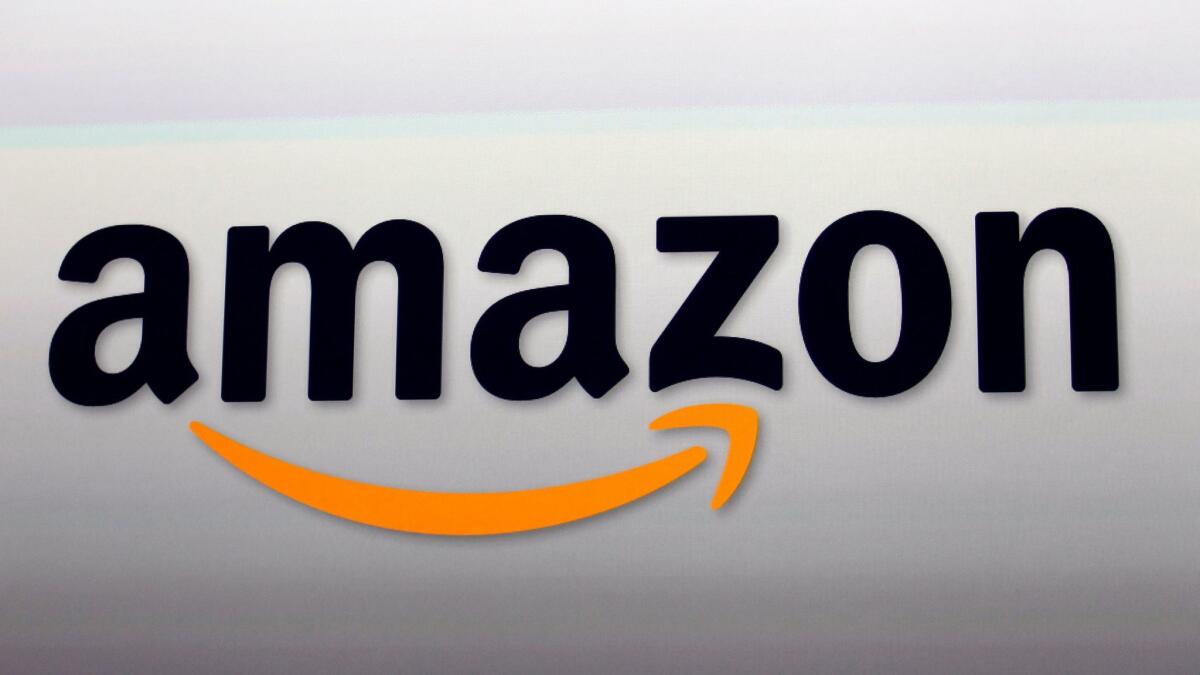Holes close in China’s ‘Great Firewall’ as Apple and Amazon snub apps to bypass censors

- Share via
Moves by business giants Apple Inc. and Amazon.com Inc. to stop people from using censorship-skirting apps in China have renewed questions about the extent to which U.S. companies are willing to work with authorities to operate in the vast but tightly controlled Chinese market.
Apple Chief Executive Tim Cook defended the company’s decision to remove dozens of apps designed to circumvent censorship from the Chinese version of its app store.
In an earnings call Tuesday, Cook said China tightened its rules on virtual private networks, or VPNs, in 2015 and was now making a renewed push to enforce them.
“We would obviously rather not remove the apps, but like we do in other countries, we follow the law wherever we do business,” he said.
By helping Chinese authorities curb the use of many popular VPNs, U.S. tech companies are seen as helping the Communist Party bolster what is already the world’s most elaborate and sophisticated censorship regime, often called the Great Firewall.
In addition to blocking the likes of Google and Facebook, China’s censors shape what is published online, pull content deemed politically sensitive and, according to a recent study, even intercept images sent via chat apps.
Cook argued that pulling some apps is better than entirely pulling out of the market.
“We strongly believe that participating in markets and bringing benefits to customers is in the best interest of the folks there and in other countries as well,” he said. “And so we believe in engaging with governments even when we disagree.”
Amazon was in the spotlight Wednesday after disclosures that its Chinese partner, Beijing Sinnet Technology, sent emails to clients advising them to delete tools used to circumvent censorship. The news was first reported by the New York Times.
An employee said Sinnet sent emails Friday and again Monday warning clients that they must eliminate any content that violates Chinese laws. The instructions came from China’s Ministry of Industry and Information Technology, the employee said.
On Wednesday, calls to Amazon Web Services’ China office went unanswered. (Amazon founder and Chief Executive Jeffrey Bezos owns the Washington Post.)
When China’s first and only winner of the Nobel Peace Prize, Liu Xiaobo, died in state custody last month, news of his death was all but scrubbed from the Web in that country. On some platforms, even the candle emoji was blocked.
To get around these restrictions, millions of Chinese individuals and businesses use VPNs. The country’s government knows this but has let the practice continue, to an extent — in part because it is good for business and helps academic research.
It is not yet clear how the latest drive to regulate VPNs will play out. In the earnings call, Apple’s Cook emphasized that his company had removed some apps, but not all. The fact that many VPNs remain could mean the government is focused on regulating the VPN industry, not eliminating it altogether.
For a sector focused on privacy, that’s still bad news.
“Apple claims to just follow the law, but it’s just a convenient excuse,” said a man who goes by the pseudonym Martin Johnson. Johnson is co-founder of GreatFire.org, a website that monitors China’s Internet filtering and maintains an app to help Internet users get past the restrictions. “In fact,” he said, “they are actively helping the Chinese government expand its control globally.”
“When Apple removes an app from the app store of a given country, it affects all users who have registered with an address in that country, regardless of their physical location,” he added. “This means that, thanks to Apple, Beijing gets a degree of control of Chinese citizens anywhere in the world.”
The move comes as China tightens restrictions on both Internet users and technology companies — a broader strategy to consolidate President Xi Jinping’s power and counter foreign influence. The recent crackdown could also be timed to coincide with the 19th party congress next month. China typically enhances security and government control during times of political sensitivity.
Rauhala writes for the Washington Post.






